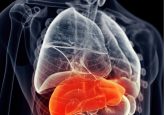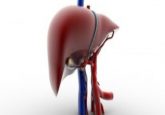Residual risk of hepatocellular carcinoma after HCV eradication: more than meets the eye

Eradication of HCV in patients with advanced liver fibrosis or cirrhosis reduces, but does not altogether abolish, the risk of development of hepatocellular carcinoma. The reasons underlying this residual risk remain elusive. Even if HCV clearance eliminates its direct and indirect carcinogenic effects, the persistence of cirrhosis and the possible coexistence of metabolic factors (diabetes, obesity and insulin resistance) and of alcohol abuse can promote the development of hepatocellular carcinoma acting as autonomous, nonviral carcinogenic factors. Lessons learned in the IFN era may still assist in predicting the forthcoming scenario, when IFN-free regimens will obtain high rates of viral clearance even at the most advanced stages of liver disease.
Click here to view the full article.


